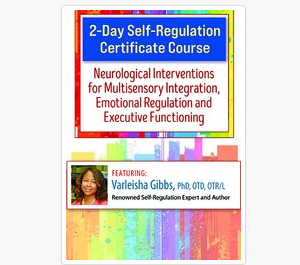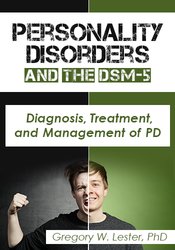The Science of Integrative Medicine
$170.00 Original price was: $170.00.$39.90Current price is: $39.90.
Perhaps you’ve heard rumors about an herbal supplement that acts as the Fountain of Youth, improves your mood, and helps you lose weight. Maybe you’ve considered trying hypnosis to stop smoking, but you’ve heard it might be just a waste of money. You may be curious about how getting stuck with many sharp needles can actually alleviate pain and stress—when it seems like it should do the opposite.
The Science of Integrative Medicine
If you’ve ever considered herbal supplements, meditation, acupuncture, yoga, or even a change of diet to promote better health, then you already know that the subject of what’s been called “alternative medicine” is both intriguing, offering help for conditions that might seem hopeless, and controversial, with its effectiveness touted by some and scoffed at by others.
The Science of Integrative Medicine, produced in collaboration with Mayo Clinic—widely regarded as one of the finest health institutions on the planet—provides you with 12 informative lectures on the science-based facts and historical context of commonly used integrative treatments. Delivering a foundational explanation of this wide and diverse new field of medicine, this course is designed to empower you and give you the knowledge you need to explore how to use these techniques to improve your wellness. Taught by Brent Bauer, M.D., director of Mayo Clinic’s Complementary and Integrative Medicine Program, this course provides you with an illuminating exploration of many genuinely beneficial treatments.
In the last two decades, as a wide array of practices have gained greater acceptance as potential forms of treatment and healing, the terms used to describe them have evolved as well. Complementary and alternative medicine, or CAM, was once the common name for therapies once considered “alternative” or “unorthodox.” Today, as physicians integrate more of these treatments into their medical practices, the term CAM has given way to integrative medicine.
Integrative medicine describes the integration of natural or holistic practices into the health-care paradigm to complement conventional Western medicine and promote wellness. Western medicine can accomplish incredible feats of healing, but as advanced as it is, it still doesn’t have cures for everything. Relying solely on conventional Western medicine, people often wait until they have serious health problems before seeking care—but integrative medicine includes many practices that are particularly good for preventing certain conditions and ameliorating the effects of others, making it a valuable adjunct to conventional care.
The therapies discussed in this course have been shown to help people reach health goals such as pre-surgery preparation, post-surgery recovery, and better management—and reduction—of chronic pain. The advent of integrative medicine has been revolutionizing Western medical care as doctors realize that their options for patient care can be expanded to a plethora of complementary practices that directly benefit wellness and can help alleviate, prevent, or remedy issues such as arthritis, chronic back or neck pain, fibromyalgia, Alzheimer’s disease, high blood pressure, stress, heart disease, menopause, and the common cold.
Tour the Most Common Integrative Practices
In The Science of Integrative Medicine, Dr. Bauer, of Mayo Clinic, introduces you to more than a dozen scientifically tested, integrative approaches and explains what they do and do not treat, empowering you to take your health options into your own hands. He leads you through the science and history of some of the most common practices and discusses the pros and cons of each. He also offers suggestions for when and how you might consider talking to your doctor about including these therapies in your wellness plan. Through this course, you’ll learn about:
Treatments by professionals:
- Acupuncture involves inserting thin needles at strategic points on the body. It is commonly used to treat nausea, fibromyalgia, and many kinds of pain.
- Hypnosis induces a trance-like state where the mind is more open to suggestion. Hypnosis may be used to help manage pain, anxiety, and tension headaches, as well as to treat addiction and change negative patterns of behavior.
- Massage can address pain, anxiety, tension, and chronic conditions, as well as aid in pre-surgery preparation and post-surgery healing.
- Spinal manipulation is practiced by chiropractors and physical therapists. It can be particularly helpful for lower back pain.
Treatments you can do on your own:
- Meditation involves calming and clearing the mind. It is used to help treat anxiety, stress, high blood pressure, acute or chronic pain, and many other issues.
- Music therapy can benefit your mental and physical health. It may help people with Alzheimer’s disease and autism, as well as depression.
- Guided imagery involves bringing to mind a specific image or a series of memories to produce certain responses in the body. It’s used to treat headaches and some forms of pain.
- Spirituality often involves an individual’s connection to others and a search for meaning and happiness in life. These connections have been shown to help people deal with medical illness and chronic disease.
And physical exercises:
- Tai chi is a graceful exercise in which you move from pose to pose. It’s been shown to improve balance and flexibility.
- Yoga often involves a series of physical postures and a focus on breathing. Yoga is commonly practiced to relieve stress, as well as to treat heart disease and depression.
In addition to teaching you about specific practices, Dr. Bauer reveals the key to getting the most out of any form of integrative medicine: a solid foundation of wellness that includes simple lifestyle changes that can lead to significant improvements in your health. For example, you’ll hear about the concept of NESS, which is based on research that demonstrates how a program involving diet, exercise, stress management, and social support can reverse the aging process on a cellular level in a test group.
The Good, The Bad, and the FDA Unapproved
Dr. Bauer provides an in-depth investigation into a number of popular myths about integrative medicine without resorting to oversimplifying or generalizing. He kicks off this exploration with a review of the positive and negative effects of herbal remedies.
A lot of the skepticism about herbal remedies comes from the fact that they are not FDA-approved. On a supplement’s packaging, you may see this: “This statement has not been evaluated by the U.S. Food and Drug Administration (FDA). This product is not intended to diagnose, treat, cure or prevent any disease.” Dr. Bauer sheds light on what this really implies and why it may not always be cause for concern. At the same time, he cautions us against some common herbs, which, at their worst, have been known to cause death. Receiving medical guidance about herbal remedies is vital. Even commonly used herbs, such as chamomile, can cause serious harm to someone with a severe allergy.
The conclusion Dr. Bauer reaches is that when working with a doctor, most herbal supplements can be used effectively. Dr. Bauer helps you do your homework to become a well-informed and wise patient and consumer when it comes to herbal supplements, so that you can make the best decisions for your optimal health.
A Trusted Source of Information
This course is an up-to-date and authoritative exploration of integrative medicine. Dr. Bauer is a Professor of Medicine, and he has been the director of the Complementary and Integrative Medicine Program at Mayo Clinic for 15 years. His main research interest has been the scientific evaluation of complementary therapies, where his work is at the forefront of the emerging field of integrative medicine, combining the best of conventional Western medicine with the best of evidence-based complementary therapies. Dr. Bauer and Mayo Clinic—an indisputably trusted resource for medical facts—provide evidence for the effectiveness, benefits, and drawbacks of integrative therapies in a straightforward, well-organized, and thorough manner, making the benefits of each practice easy to understand and accessible to everyone.
The Science of Integrative Medicine will help you take a proactive approach to your health and wellness. As you delve deeply into integrative practices and learn the science behind how and why they work, you’ll gain a deeper appreciation for why Western doctors are now evaluating and incorporating such practices into an array of tools at their disposal to help you reach and maintain wellness. At the conclusion of the course, you’ll find yourself to be a more informed decision-maker. And you’ll see that by working with your doctor to discuss the scientifically backed practices you feel comfortable with, it is possible to put together an integrative program that can positively affect your health.
Get James Colquhoun – Beauty, Skin & Gut Summit download right now!
Be the first to review “The Science of Integrative Medicine” Cancel reply
Related products
Health & Medical
Health & Medical
2018 High Risk Obstetrics Current Trends, Treatments & Issues
Health & Medical
Health & Medical
Health & Medical
Health & Medical
Health & Medical
Gregory W. Lester – Personality Disorders and the DSM-5 – Diagnosis, Treatment, and Management of PD













Reviews
There are no reviews yet.